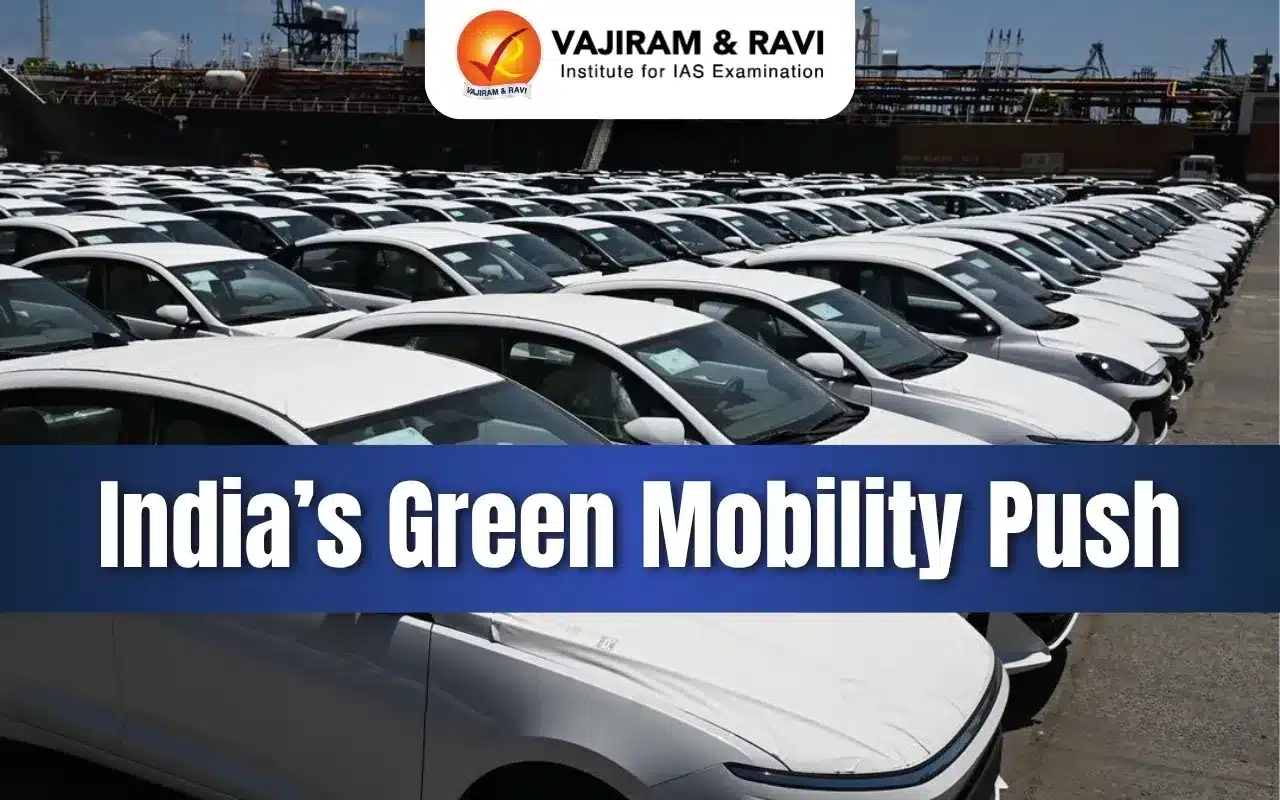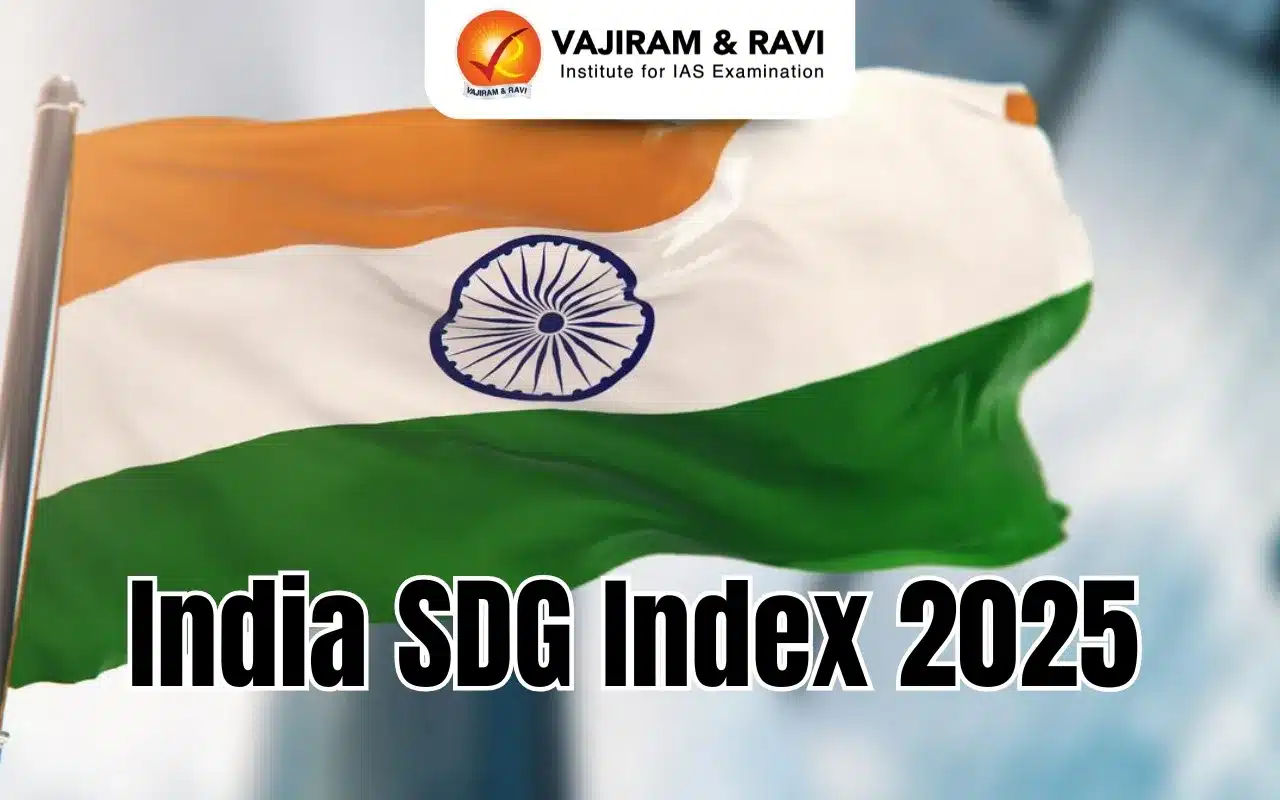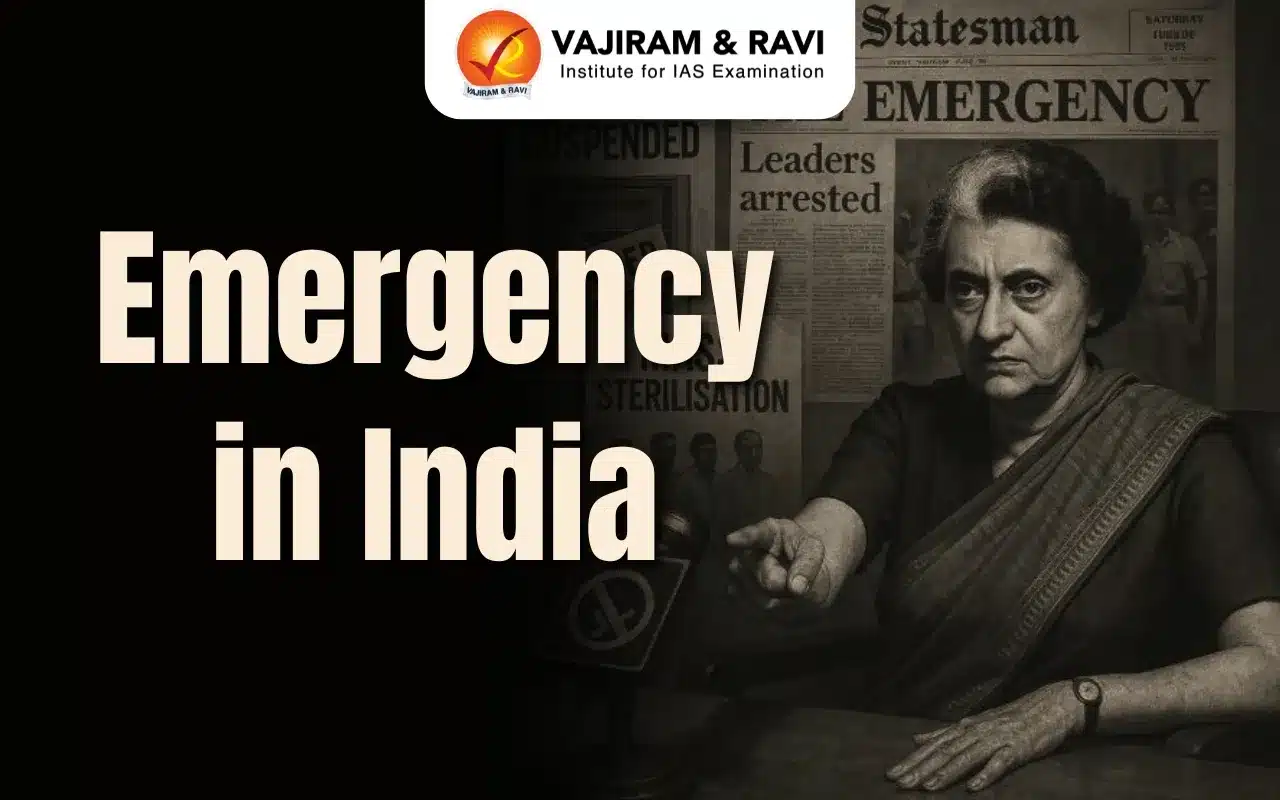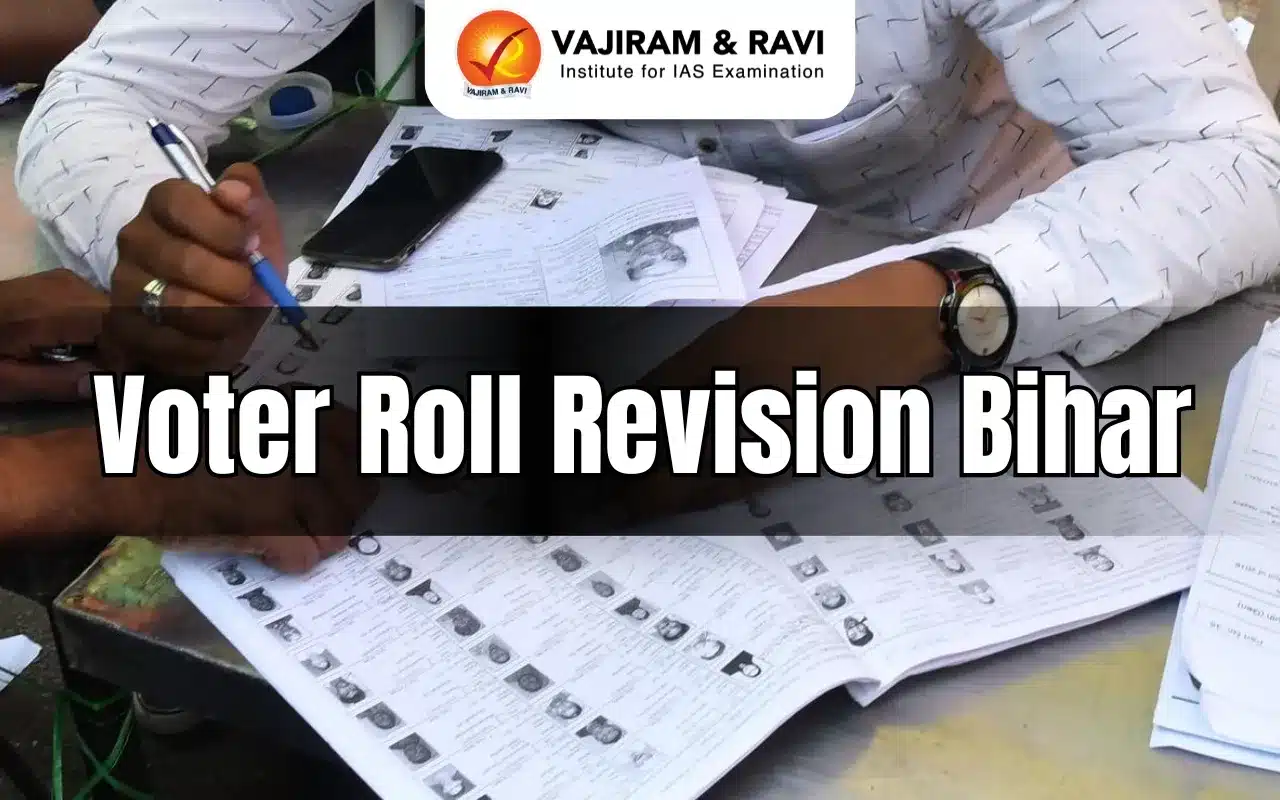India’s Green Mobility Push Latest News
- The Ministry of Heavy Industries issued detailed guidelines under the Scheme to Promote Manufacturing of Electric Passenger Cars in India (SPMEPCI), first notified on March 15, 2024.
- The scheme offers reduced import duties to global electric vehicle (EV) manufacturers in return for significant investments in domestic manufacturing.
- The Union Heavy Industries Minister also noted that the global EV giant Tesla is not interested in manufacturing cars in India but keen on establishing showrooms in the country.
- Earlier, the U.S. President Donald Trump has said that if Tesla were to build a factory in India to circumvent that country’s tariffs, it would be “unfair” to the U.S.
Key Highlights of the Scheme
- Reduced import duties on electric vehicles:
- Companies can import up to 8,000 electric four-wheeler (e-4W) units annually at a reduced customs duty of 15%, compared to the existing 70–100%.
- The benefit is applicable for 5 years from the date of application approval.
- Applicable only on CBUs (Completely Built Units) with a minimum CIF value of $35,000.
- Investment mandate:
- Approved applicants would be required to make minimum investment of Rs. 4,150 crore in line with the provisions of the scheme.
- Manufacturing operations must commence within 3 years of application approval.
- Eligible investment includes:
- New plant, machinery, equipment, and associated utilities
- Engineering Research and Development (ER&D)
- New buildings (up to 10% of committed investment)
- Charging infrastructure (up to 5% of committed investment)
- Land costs are excluded from eligible expenditure.
- Domestic value addition (DVA) requirements:
- Minimum 25% DVA within 3 years.
- Minimum 50% DVA within 5 years from the approval date.
Safeguard and Compliance Mechanisms
- The Applicant’s commitment to set up manufacturing facilities, shall be backed by a Bank Guarantee from a scheduled commercial bank in India equivalent to –
- The total duty to be forgone (capped at ₹6,484 crore per applicant) or
- Rs 4,150 crore, whichever is higher.
- The Bank Guarantee should be valid at all times during the tenure of the Scheme.
Eligibility Criteria for Applicants
- To qualify and receive benefits under the scheme, an applicant is required to have a global group revenue from automotive manufacturing of a minimum ₹10,000 crore.
- Moreover, the global investment of a company or its group companies in fixed assets must be at least ₹3,000 crore.
Application Process
- Application window: At least 120 days, starting soon (June 2025).
- The Ministry of Heavy Industries shall have the right to open the application window, as and when required till March 15, 2026.
- A non-refundable application fee of ₹5,00,000 will be payable by the applicant while filing the application form.
Schemes for Advancing India’s EV Ecosystem
- PM Electric Drive Revolution in Innovative Vehicle Enhancement (PM E-DRIVE) Scheme:
- Notified on 29th September, 2024, to incentivise sale of e-2W, e-3W, e-Trucks, e-Ambulances, and e-buses.
- The scheme also supports development of charging infrastructure and upgradation of vehicle testing agencies.
- Production Linked Incentive Scheme for Automobile and Auto Component Industry (PLI-Auto): Approved on 15th September, 2021, for enhancing India’s manufacturing capabilities for Advanced Automotive Technology (AAT) products.
- PLI Scheme for Manufacturing Advanced Chemistry Cells (ACC): Approved on 12th May, 2021, the scheme envisages to establish a cumulative ACC battery manufacturing capacity of 50 GWh.
- FAME-II: It was introduced with the objective of domestic manufacturing of electric vehicles, its assemblies/ sub-assemblies and parts/sub-parts thereby increasing the domestic value addition.
- PM e-Bus Sewa-Payment Security Mechanism (PSM) Scheme: The scheme aims to support deployment of more than 38,000 electric buses.
- SPMEPCI: This scheme promotes the manufacturing of electric cars in India.
Conclusion
- This scheme is a significant policy step under India’s green mobility and manufacturing push, aligning with net-zero emission goals, job creation, and boosting local value chains.
- It seeks to make India an attractive destination for global EV manufacturers while ensuring significant domestic economic benefits.
India’s Green Mobility Push FAQs
Q1. What are the key conditions for electric vehicle manufacturers to avail reduced import duties under the Government’s new EV manufacturing scheme (SPMEPCI)?
Ans. To avail the reduced 15% import duty on electric four-wheelers, manufacturers must invest a minimum of ₹4,150 crore and set up local manufacturing within 3 years.
Q2. What is the Domestic Value Addition (DVA) requirement under the electric passenger vehicle manufacturing scheme?
Ans. Applicants must achieve at least 25% DVA within 3 years and 50% within 5 years from the date of approval.
Q3. How has the scheme ensured accountability and compliance from the participating manufacturers?
Ans. Compliance is ensured through a mandatory bank guarantee equal to the duty foregone or ₹4,150 crore, whichever is higher.
Q4. How does the scheme align with India’s industrial and environmental policy goals?
Ans. The scheme supports the Make in India initiative, promotes green mobility, and encourages foreign investment in clean technology manufacturing.
Q5. What are the eligibility criteria for companies to apply under this scheme?
Ans. Eligible companies must have a global automotive manufacturing revenue of ₹10,000 crore and a minimum global fixed asset investment of ₹3,000 crore.
Last updated on June, 2025
→ UPSC Notification 2025 was released on 22nd January 2025.
→ UPSC Prelims Result 2025 is out now for the CSE held on 25 May 2025.
→ UPSC Prelims Question Paper 2025 and Unofficial Prelims Answer Key 2025 are available now.
→ UPSC Calendar 2026 is released on 15th May, 2025.
→ The UPSC Vacancy 2025 were released 1129, out of which 979 were for UPSC CSE and remaining 150 are for UPSC IFoS.
→ UPSC Mains 2025 will be conducted on 22nd August 2025.
→ UPSC Prelims 2026 will be conducted on 24th May, 2026 & UPSC Mains 2026 will be conducted on 21st August 2026.
→ The UPSC Selection Process is of 3 stages-Prelims, Mains and Interview.
→ UPSC Result 2024 is released with latest UPSC Marksheet 2024. Check Now!
→ UPSC Toppers List 2024 is released now. Shakti Dubey is UPSC AIR 1 2024 Topper.
→ Also check Best IAS Coaching in Delhi
Tags: india’s green mobility push mains articles upsc current affairs upsc mains current afffairs












